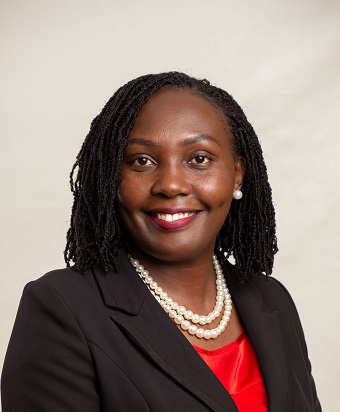Entrepreneurs posing for a photo after the networking event.
The Stanbic Business Incubator Limited (SBIL), hosted a successful event over the weekend under the theme; “Risk Management and Resilience: Leaving No One Behind,” drawing hundreds of participants from various sectors including entrepreneurs, industry experts and stakeholders. The event focused on building adaptive strategies for inclusive business growth, providing a platform for knowledge-sharing, mentorship and networking.
The Chief Guest, Peninah Aheebwa, the Director Economic and National Content Monitoring at Petroleum Authority of Uganda, emphasized the critical role of risk management for small and medium enterprises (SMEs) in Uganda. In her remarks, Aheebwa stressed the importance of preparedness, saying, “We urge SMEs to invest in risk management tools, from digital solutions to robust financial practices, to anticipate and mitigate potential threats. This is key to ensuring resilience in an increasingly volatile business environment, especially in sectors like oil and gas where the stakes are high.”
Aheebwa also reaffirmed the Petroleum Authority’s support for initiatives that promote business sustainability, stating, “We remain committed to backing initiatives that foster resilient businesses and sustainable development, enabling Uganda’s entrepreneurial ecosystem to thrive.” She further encouraged collaboration between government, financial institutions and the private sector to create an enabling environment for SMEs to manage risks and grow sustainably. She also tipped Ugandan businesses to embrace Joint ventures and diversification to be able to tap in the numerous and big projects in the Oil and Gas sector.
Rutabanzibwa Lwanga, the Head of Non- financial Risk at Stanbic Bank Uganda, delivered a master class on Risk Management, focusing on the importance of risk management for business sustainability. Lwanga remarked, “It is good to be optimistic, however it is equally important to appreciate and manage business risks as a way of managing your business responsibly. Investing in risk management tools like financial systems and digitalization is essential for mitigating risks and ensuring business continuity.” He tipped attendees on the best approach to manage risks as Identifying or assessing , developing mitigation measures for prevention, building a structure that can respond to these risks in case they happen or to actively develop solutions to prevent the risks and lastly to be able to learn and adapt in case they incur risks.
Catherine Poran, Chief Executive of Stanbic Business Incubator Limited, highlighted the incubator’s role in empowering entrepreneurs to navigate challenges. “At the Stanbic Business Incubator, we are dedicated to providing tailored capacity-building programs that enhance access to finance, markets and operational skills,” Poran explained. “Through mentorship, training and networking, we support entrepreneurs in developing sustainable business models and building resilience, ultimately contributing to a more robust and inclusive economy.” She further more urged Founders to mitigate the human risk by finding the right talent to support them to allow for continuity and sustainability, “It is common practice for our Ugandan founders to hold all their business information to their chest even if they are breaking, learn to take advantage of the available talent to support you so you don’t drop dead because of your business”. “Take care of your health she added.
Timothy Ssemakadde, the Country Manager of McDermott, a leading global engineering, procurement, construction and Installation Company and a key player in Uganda’s oil and gas sector, demystified and clarified the procurement and contracting process for local content companies. He said McDermott understands the risk that Ugandan companies face especially financially. He explained, “After McDermott studies the cash flow of the local contractors, we break the scope into sizeable project chunks and financially de-risks local contractors by paying a 10% advance before coming to site which is taken back in a lifetime of two years to indemnify our contactors and allow them have a positive cash flow.”
Participating entrepreneur and panellist Harold Ssemakadde, founder of global trotters a logistics company, expressed his appreciation for the event and the incubator’s support. “Thanks to the mentorship and training I received 6 years ago through the Stanbic Business Incubator’’. Ssemakadde encouraged fellow entrepreneurs to borrow from well-established financial institutions like Stanbic Bank as a risk management business practice and to benefit from numerous ecosystem opportunities these institutions offer. He stressed the need for business owners to have financial discipline. He said,” diversion of funds from the reason it was acquired is a sure way to fail and has no recovery.
The event also featured engaging panel discussions, interactive Q&A sessions, and networking opportunities. Entrepreneurs were encouraged to leverage platforms like the Stanbic Business Incubator to build resilience and adaptability, ensuring they are better equipped to navigate challenges and seize new opportunities in the evolving business landscape.
This event aligns with Uganda’s National Development Plan III and the Sustainable Development Goals (SDGs), particularly SDG 1 (No Poverty), SDG 5 (Gender Equality), and SDG 8 (Decent Work and Economic Growth), focusing on inclusive growth and empowering marginalized groups such as women and youth.





